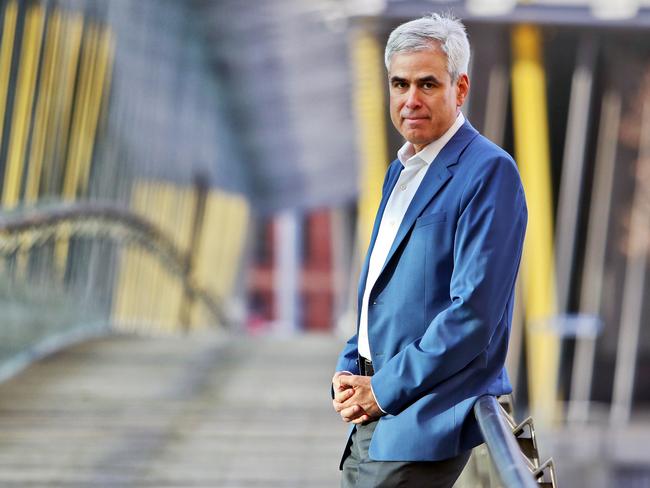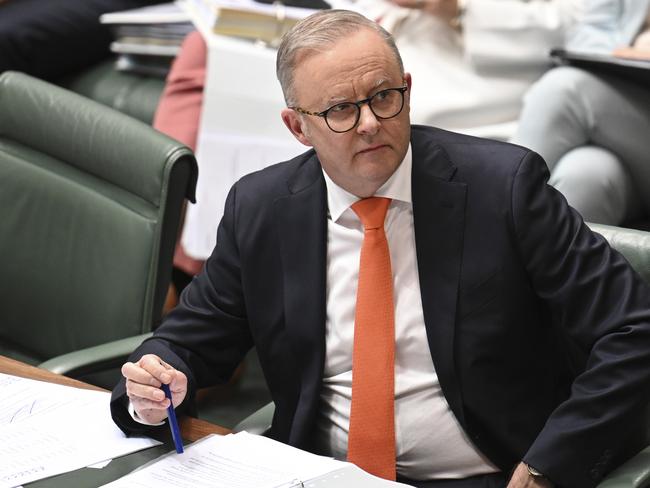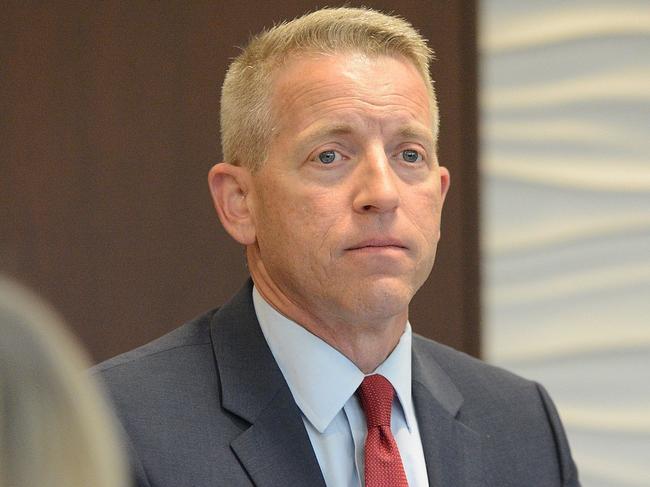US social psychologist Jonathan Haidt backs Australia’s planned minimum age for social media
The American social psychologist leading the movement to get kids off social media has praised Australia’s planned crackdown and explained how he thinks it should work.
World
Don't miss out on the headlines from World. Followed categories will be added to My News.
The US social psychologist spearheading a global push to get kids off social media has hailed the Australian government’s planned age limit and offered a blueprint to implement the law.
Jonathan Haidt, the best-selling author of The Anxious Generation, said he was “thrilled” by the move and that Australia was “showing the world that we don’t have to accept these harms to our children”, pointing to the online threats to their mental and physical health.
Professor Haidt – whose work on the “great rewiring of childhood” has helped spark worldwide action by families and politicians – encouraged Australia to set a minimum age of 16 to access social media, backing this masthead’s Let Them Be Kids campaign.

Prime Minister Anthony Albanese promised to introduce new laws this year for a minimum age between 14 and 16, saying his personal view was to “err on the side of a higher limit”.
“Social media is wildly inappropriate for minors … Fourteen is just too young,” Professor Haidt said.
“There is research showing that the maximum damage to kids from social media happens in the first half of puberty, which runs from roughly age 11 or 12 up to 14 or 15.”
“Early puberty is a time of rapid brain development and extreme openness to influence from ‘influencers’. Let us resolve to protect early puberty as much as we can.”

Under Professor Haidt’s plan, Australians born after 2011 would not be able to open a social media account until they turned 16, grandfathering the reforms to effectively implement them without forcing those aged 14 and 15 now to quit platforms they were already using.
“Doing it in this way would also be a bold way to say: we made a huge mistake with Gen Z. We’re not going to repeat it with Gen Alpha,” he said.
“If we focus on the safety and wellbeing of children, then 18 would be the minimum age for opening an account, as it is the minimum age for many other activities in which adults choose to take on risks for themselves.”
“However, I believe that 16 is a more politically pragmatic minimum age. I believe it is achievable, and I have recommended 16 as the legal minimum age that countries should set.”
Florida House Speaker Paul Renner also welcomed Australia’s plan, having been an architect of his state’s move to ban social media for children under the age of 14 and require the platforms to obtain parental consent for users aged 14 and 15.

He said he preferred an age limit of 16, as backed by experts, but that Florida’s law was wound back in a “political compromise” with Governor Ron DeSantis.
Mr Renner said Australia’s move was “really, really important to give momentum to overcome a very, very powerful adversary that wants to keep it just the way it is”.
“Courage begets courage, and when a state or a country acts in the interests of the wellbeing of children as Australia appears poised to do, it encourages and emboldens other states and countries around the world to do the same,” he said.
With social media exposing children to graphic sexuality, extreme violence, addictive substances and activities, and risks of physical harm, Professor Haidt said it was “mind-boggling” that other governments were protecting kids from these threats “in the offline world” but refusing to take action online.
“Social media exposes children to all of these threats, routinely, especially when we add in its propensity to connect children to men who seek sexual satisfaction from them,” he said.





